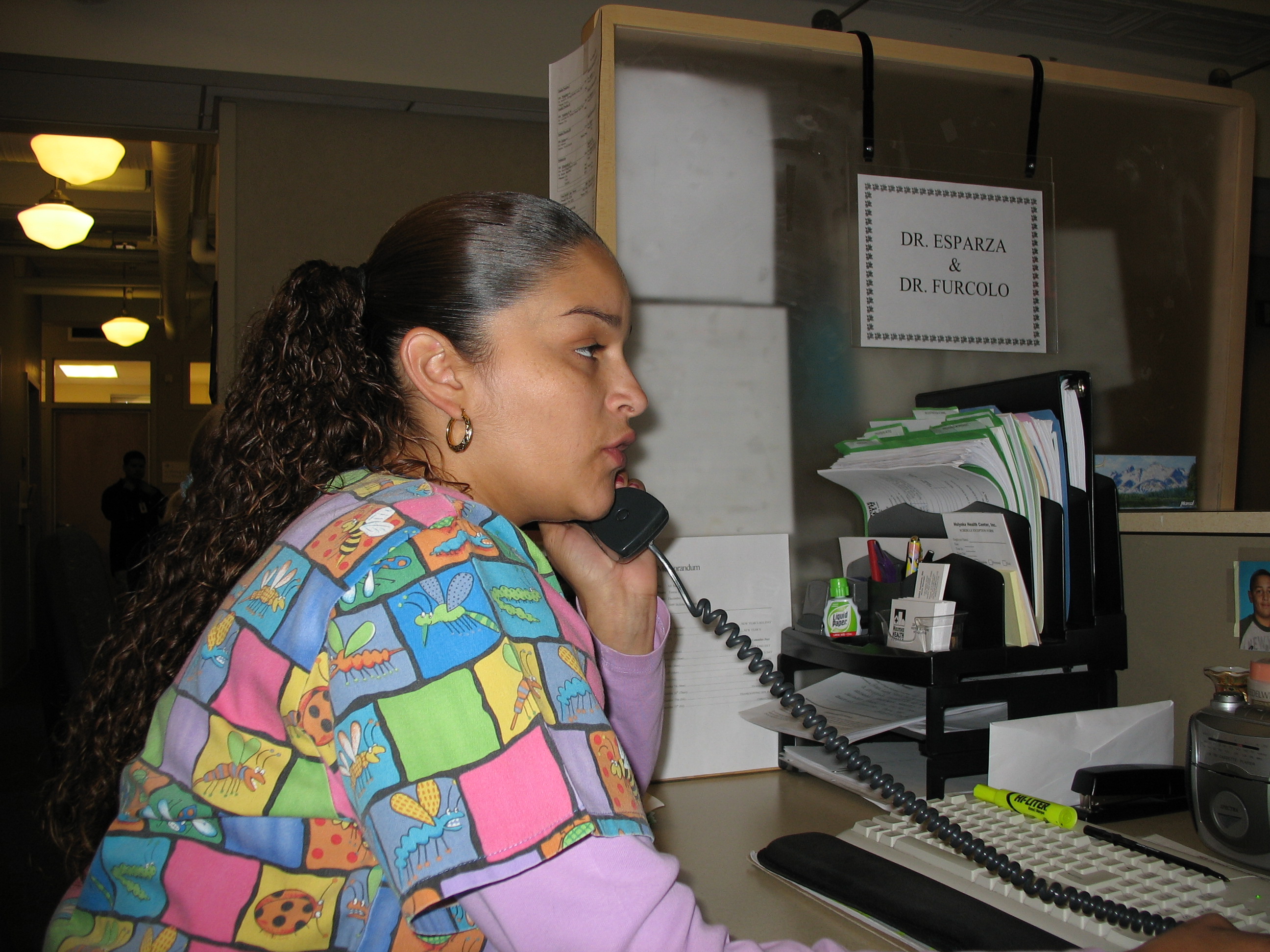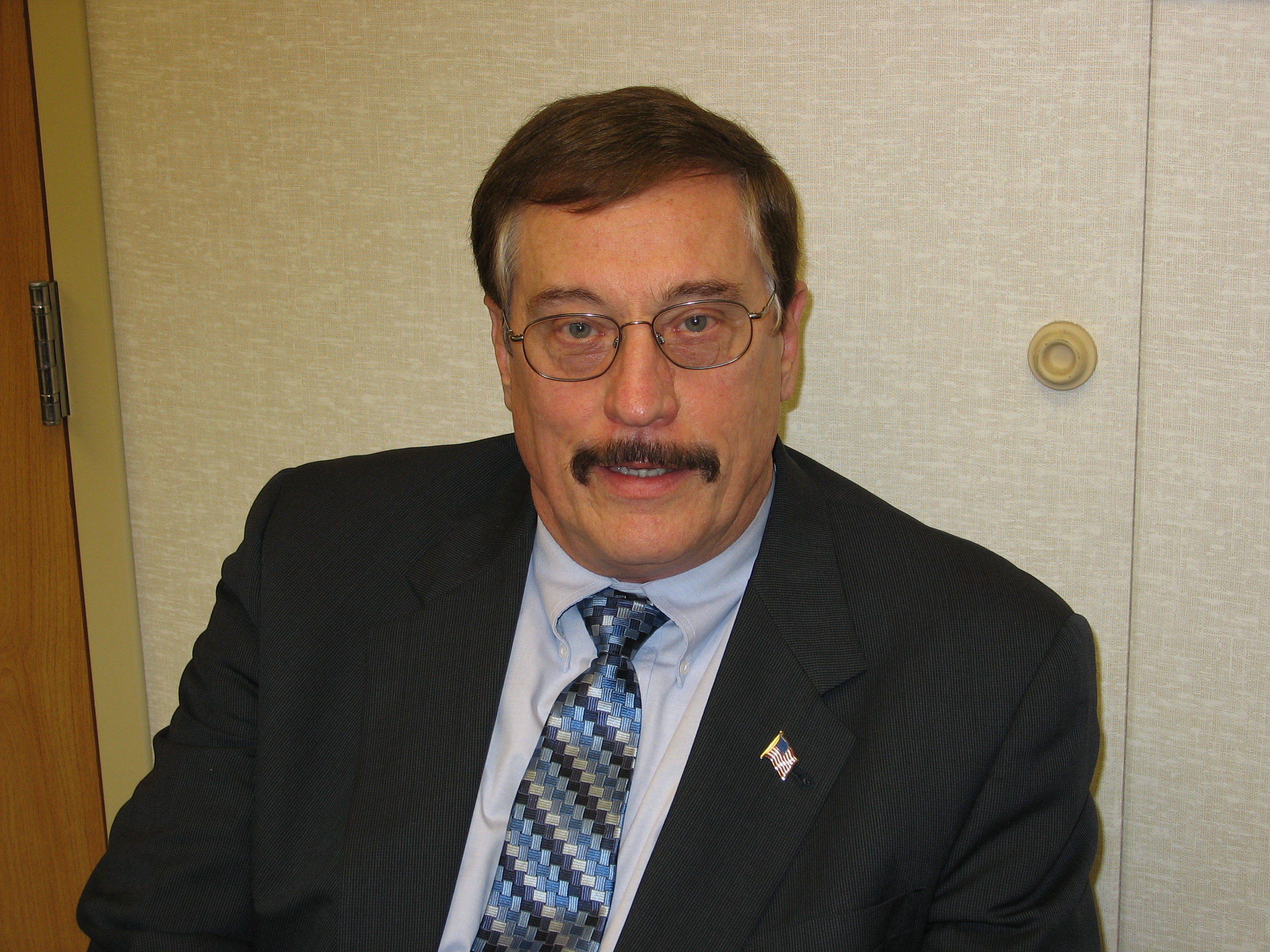A day at Holyoke Health Center
I started hanging out with Aurora Vicente, who helps people find insurance or sign up for state programs. She says she hears from people who simply can’t figure out how to navigate the state’s system, and from those who slip through the cracks — as well as those who finally have state subsidized insurance after years of relying on the free care pool. One of Aurora’s clients yesterday was extremely upset because she could not access Commonwealth Care. Her employer offers health insurance but she does not make enough money to pay for it. Since she officially declined employer insurance, she is not eligible for the state plan, and she’s worried that the additional costs she must now incur will cause her to lose her house.
I also spent a couple hours with the women who answer the phones at the switchboard — they told me they take about 20 calls a day from people looking for a primary care doctor, and they who end up getting put on a waiting list. That list has about 1600 people on it — and the wait can last four months. While I was with them, however, the calls were thin. The women told me that since Holyoke is a tight community, word has already gotten around that the waiting list is months-long and they’re better off trying elsewhere.
Another interesting interview I had this week was with Hank Porten, president of Holyoke Hospital. He believes health reform actually hurts small hospitals like Holyoke Hospital with mostly low-income populations. That’s because in the past, they would get reimbursed for many patient visits from the free care pool — which reimbursed at almost the amount that hospitals spend. But now that many of those patients are on expanded Mass Health or Commonwealth Care, the hospital must take the insurance reimbursement — and he says it’s well below what they need to cover costs. (In contrast, private insurers generally pay better — but most of Holyoke Hospitals’ patients don’t have private insurance.)


